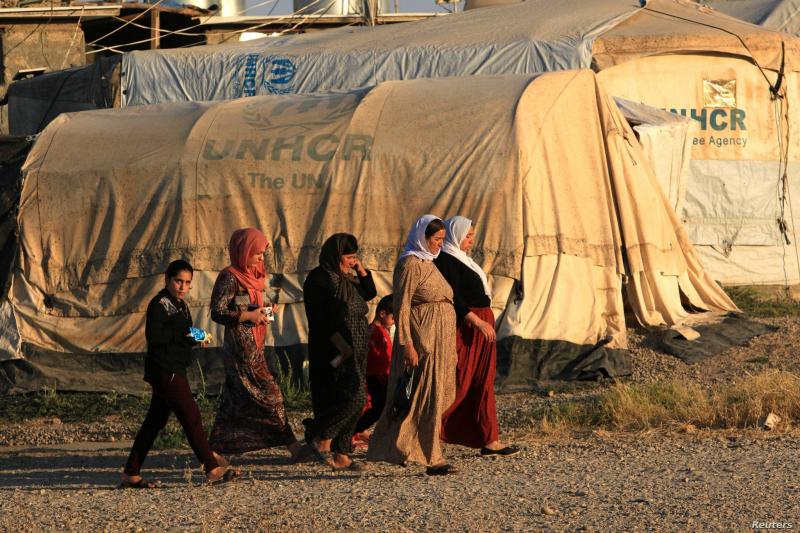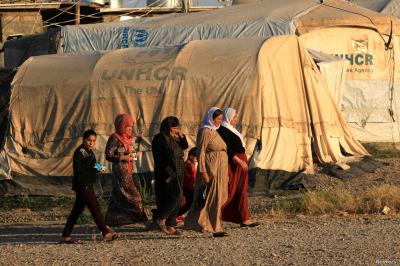The documentary "Sabaya," which depicts the rescue of Yazidi women who were sexually enslaved by ISIS, has received significant acclaim from critics. It won the award for Best Documentary Director at the Sundance Film Festival and impressed audiences at the Berlin Human Rights Film Festival last week. However, it has upset some women who participated in the film, with claims that it violates women's rights and deprives them of control over their lives and the decision on how their images are used, according to The New York Times.
Three Yazidi women featured in the documentary told the U.S. newspaper that they did not understand the director, Hogir Hirori's, intentions, adding that he had informed them the film would not be shown in Iraq or Syria. A fourth woman stated she knew a film was being made but told him she did not want to be in it. One of the Yazidi women said, "I told them I do not want to take pictures. This is not good for me. It is dangerous." This issue has sparked controversy over the different standards applied to documentary subjects in Western countries.
Hirori, a Kurdish filmmaker based in Sweden, claimed that he initially obtained verbal consent from the women in the days following their rescue in 2019 while staying at a safe house in Syria. He noted that he later sent written consent forms, which they signed. The women confirmed that they received the consent forms nearly two years after his filming, and that they were in English, a language they do not understand.
The documentary captures the efforts to rescue Yazidi women by two Yazidi community leaders and guards at the al-Hol camp in northeastern Syria. It also addresses the issue of the separation of Yazidi women from their children born to ISIS fighters. After ISIS's fall in 2019, approximately 60,000 women and children from areas previously controlled by the terrorist group ended up in the overcrowded camp. Among them were hundreds of Yazidi women who were forced to continue living with the families of the fighters who had enslaved them.
Some women willingly gave up their children. However, others remain hidden in the al-Hol camp and elsewhere, knowing they would have to abandon their young children if they wished to return to their families and community in Iraq. Some scenes in the film show a young woman forced by Yazidi leaders to leave her one-year-old son in Syria in order to return to Iraq. Peter Galbraith, a former U.S. ambassador who helped reunite over a dozen Yazidi women with their young children who had been taken from them, stated that the Yazidi community in Iraq does not allow women to reclaim children born to ISIS fighters.




